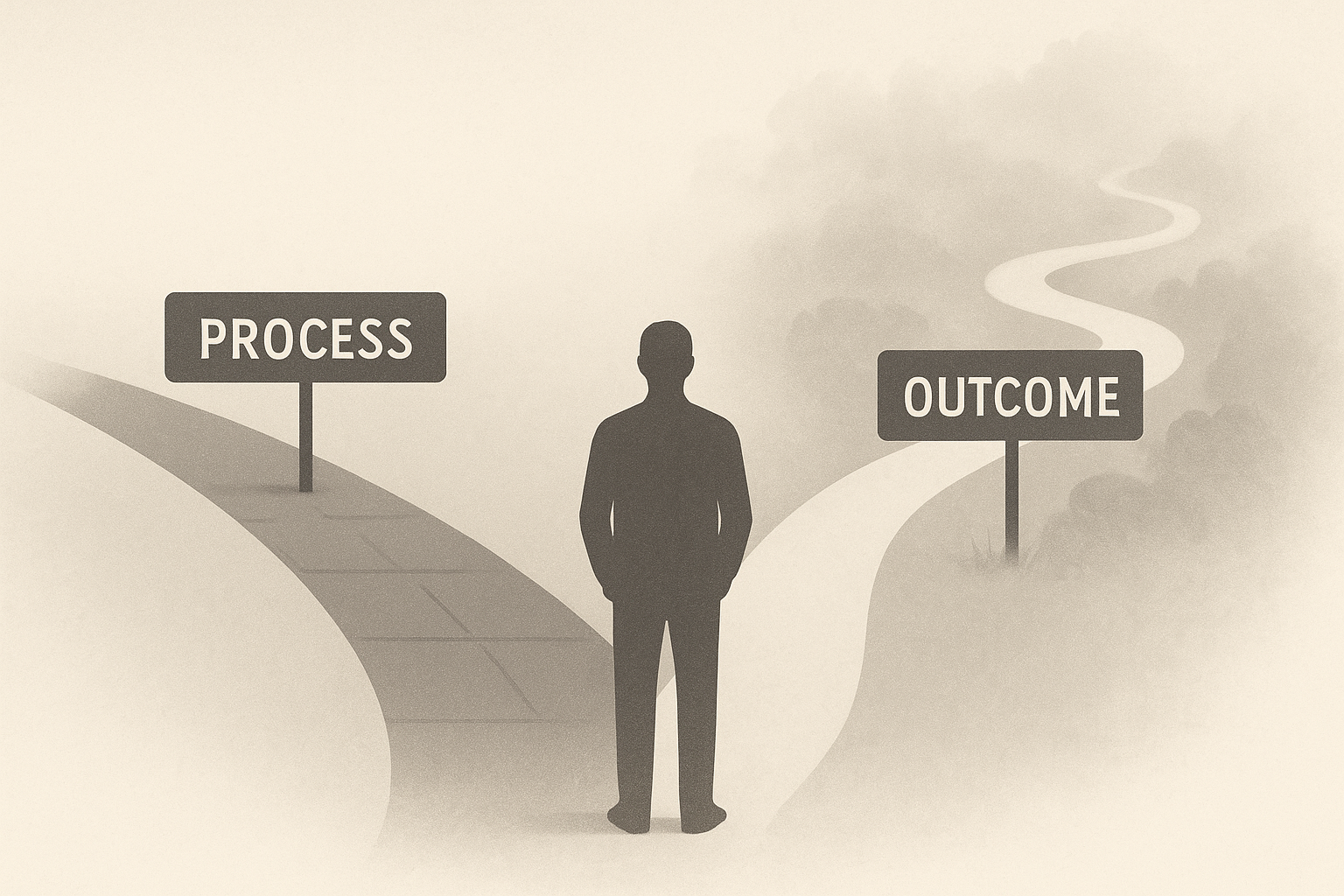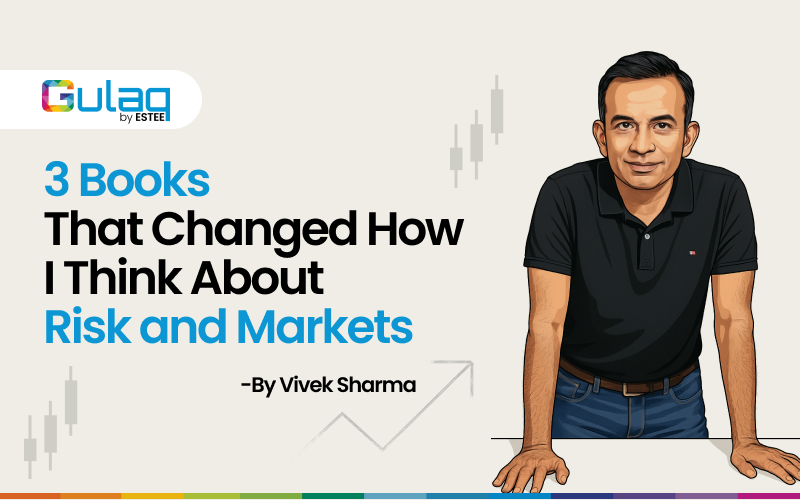
Myopia
Myopia is an illness that prevents people from seeing distant objects clearly. It’s a very common condition—over ten million people suffer from it every year in India. While there are no official statistics, I am certain that this illness consumes far more people in the investment community than in medicine.
Short-sightedness has plagued all parties in the investment community, including investors, companies, and investment managers.
Despite the well-known fact that 93% of individual traders incurred losses in equity F&O between FY22 and FY24 [Source: SEBI], there has been a massive increase in the number of retail traders in the F&O market. According to a 2018 Morgan Stanley report titled Long-Term Conviction in a Short-Term World, most equity analysts tend to focus only on the next 2-3 years and press companies with questions about short-term results. The report also highlights that the average holding period of mutual funds has drastically decreased—from seven years in 1960 to less than one year today.
In this blog, I will reflect on the problem of short-termism and explore methods to avoid it.
Short-Termism
In a Credit Suisse study titled A Long-Term Look at Short-Termism, authors Michael J. Mauboussin and Dan Callahan highlight that short-termism is a problem that is difficult to prove. Inherently, everyone knows that short-termism is bad, however, how people behave is different from how they say they are going to behave.
We conducted a survey with our Gulaq investors to find out how long our investors plan to stay invested with us. Over 70% of the respondents indicated that they plan to stay invested for 3 years or more. However, based on our experience, we know this is not the reality—most investors remain with us for only 6 months. The right level of analysis, as emphasized by Mauboussin and Callahan in their report, is not based on what individuals say, but rather on what the stock market does.
The stock market is a place where millions of uncoordinated buy and sell decisions come together to set prices, and those prices, in turn, reshape the buy and sell decisions of millions. Over the short run, as Kynes put it, this becomes a complex guessing game.
Winning this game doesn’t require astute investing skills, but rather a god-like understanding of mass psychology. The binary nature of the market’s outcomes can sometimes fools people into incorrectly drawing cause-and-effect relationships, which gives rise to traders who believe they can detect patterns and consistently profit from them.
Short-termism isn’t just limited to investors—executives are equal partners in this dance.
They say that if you want to predict a person’s behavior, look at where their incentives lie. The compensation structure of executives is designed such that they are remunerated based on delivering short-term performance targets. This often leads management to excessively focus on short-term results, even at the cost of the long-term well-being of the organization. Discretionary spending on R&D and infrastructure is often cut down to meet quarterly earnings estimates even though they are crucial for long-term growth of the company.
Investment managers are not immune to short-termism either. They are evaluated based on their ability to outperform the benchmark, and the 2-20 revenue structure—which compensates managers based on the assets under management and performance incentives—creates immense pressure to consistently beat the market. The fear of underperformance and the potential for significant fund outflows often discourage managers from maintaining a high active share in their portfolios as a high active share means higher scope of underperformance.
In a Morgan Stanley report titled Long-Term Conviction in a Short-Term World, authors Kristian Heugh and Marc Fox highlights that managers who maintain high active share portfolios tend to outperform in the long run. However, sustaining high active share requires a long-term ownership mindset, which is often at odds with the short-term world.
The pervasive nature of short-termism makes me want to explore its evolutionary roots.
Short-termism can be understood as a survival mechanism that helped our ancestors survive in the wild by prioritizing immediate threats and opportunities. Quick, instinctive responses to danger—such as predators—and exploiting immediate rewards, like finding food or shelter, could make the difference between life and death.
Thus, our bodies evolved to prioritize short-term needs over distant ones. While short-termism was vital for survival in the past, in the modern world, it can be counterproductive, especially when success requires long-term thinking and decision-making.
How to Avoid Short-Termism
Successful investing requires more emotional discipline than intellectual prowess. As an investor, we should avoid the lure of chasing short-term greed and instead focus on long-term wealth creation. This shift in mindset can dramatically increase our odds of success.
Instead of checking the portfolio every week, check it monthly, quarterly, semi-annually, or even annually—reducing the frequency of monitoring minimizes the chances of reacting to noise and deviating from the investment plan.
Instead of making investment decisions based on current market sentiment, follow a systematic approach by investing a little every month consistently. This averages out the cost of investment and helps you sail through market ups and downs more smoothly.
The clientele effect states that different groups of investors are attracted to stocks based on their preferences for certain characteristics. Companies like Amazon and Berkshire Hathaway have been able to amass like-minded investors, which allows them to make long-term decisions—giving them a competitive advantage over firms that don’t have the same liberty.
Investment managers would benefit from finding the right type of investors who are comfortable with their investment philosophy and can remain patient for the long haul. Frequent and effective communication from managers can help calm investors’ nerves and prevent them from reacting impulsively, especially during tough market times.
Bottom Line
Myopia is a common illness that that affects nearly everyone in the investment community. It’s often difficult to overcome, given how instinctively we prioritize short-term outcomes. But to achieve long-term success, we must actively fight this tendency. By focusing on disciplined, patient investing and aligning ourselves with like-minded investors, we can gradually overcome the pull of short-termism. Recognizing and addressing this flaw—both in ourselves and in the strategies of the companies we invest in—can lead to more sustainable wealth creation and, ultimately, better outcomes for investors, managers, and businesses alike.
Related Posts
Smart Beta Strategies: What Investors Should Know Before Investing
Smart Beta Strategies: What Investors Should Know Before Investing As of August 2025, Indian mutual…
Process Matters More Than Outcome
I have spent nearly a decade of my life trading energy derivatives, and today I…
Is Market Cap the Best Way to Build an Index?
Nifty 50 is a free-float weighted index – a slight variation of market cap weighted…
3 Books That Changed How I Think About Risk and Markets
Over the past two decades, I’ve built a quiet but consistent habit — reading. Not…








